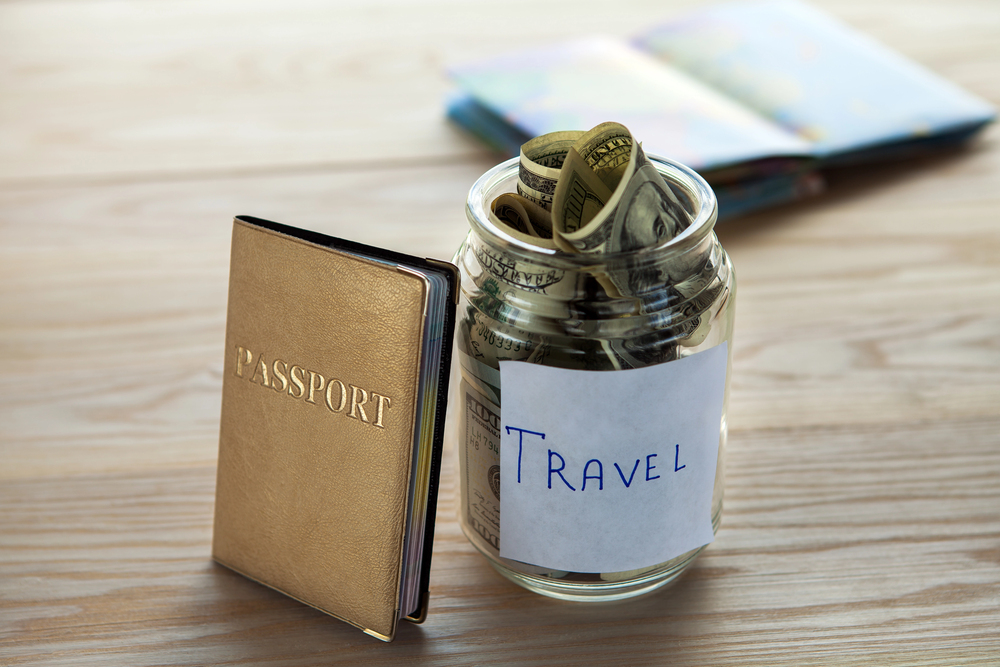Your First Adventure Awaits: Essential Tips for Budget Travel Beginners
Julian Styles
2025-09-20
6 min read

Traveling on a budget doesn't mean skimping on experiences. With a little planning and a few tricks up your sleeve, you can explore the world without breaking the bank. Whether you're a seasoned traveler or just starting out, this blog will guide you through the essentials of budget travel, ensuring your first trip is memorable and affordable.
Planning Your Trip
Before you set off on your adventure, planning is key. Start by deciding where you want to go. Opt for destinations known for being budget-friendly, like Southeast Asia, Eastern Europe, or Central America. These regions offer rich cultural experiences, stunning landscapes, and affordable prices. Research is your best friend when it comes to budget travel. Look for blogs, forums, and travel guides that offer insights into your chosen destination. Learn about the cost of living, popular attractions, and local customs. This information will help you create a realistic budget and avoid unexpected expenses. Once you have a destination in mind, it's time to set a travel budget. Consider all potential costs, including flights, accommodation, food, transportation, and activities. Factor in a buffer for emergencies or spontaneous splurges. Being financially prepared will give you peace of mind and allow you to enjoy your trip without constantly worrying about money.
Finding Affordable Flights
Flights can be one of the most significant expenses of your trip, but they don't have to be. Start by being flexible with your travel dates. Use flight comparison websites like Skyscanner, Kayak, and Google Flights to find the best deals. Setting up fare alerts can notify you when prices drop, helping you snag a bargain. Consider flying during off-peak seasons or on weekdays when ticket prices tend to be lower. Additionally, look for budget airlines that offer cheap flights to your destination. While these airlines might have fewer perks, they can save you a substantial amount of money. Another tip is to book flights well in advance. Airline prices often increase as the departure date approaches, so securing your tickets early can lead to significant savings. Alternatively, last-minute deals can sometimes be found, but this approach requires flexibility and a bit of luck.
Choosing Budget-Friendly Accommodation
Accommodation is another major cost, but there are plenty of budget-friendly options available. Hostels are a popular choice for budget travelers, offering dormitory-style rooms at a fraction of the cost of hotels. Many hostels also organize social events, making them a great way to meet fellow travelers. If hostels aren't your style, consider booking a room through Airbnb or other vacation rental platforms. These options often provide more space and amenities than traditional hotels, often at a lower price. Opt for rentals with kitchens so you can prepare your meals and save on dining costs. For the truly adventurous, couchsurfing is an option. This platform connects travelers with locals who offer free accommodation in their homes. It's a fantastic way to immerse yourself in the local culture and make new friends, but it requires a high level of trust and respect.
Eating on a Budget
Food is an essential part of travel, but eating out for every meal can quickly deplete your budget. To save money, try shopping at local markets and grocery stores. Not only will you get a taste of the local cuisine, but you'll also save significantly compared to dining in restaurants. When you do eat out, look for local eateries and street food vendors. These places often offer delicious, authentic meals at a fraction of the cost of touristy restaurants. Don't be afraid to ask locals for recommendations—they usually know the best spots to eat well on a budget. Cooking your meals is another excellent way to save money. Many hostels and vacation rentals have communal kitchens where you can prepare simple dishes. This approach not only cuts costs but also gives you control over what you eat, allowing you to maintain a healthy diet while traveling.

Saving on Sightseeing
Sightseeing is one of the highlights of any trip, but it doesn't have to be expensive. Look for free or low-cost attractions in your destination. Many cities offer free walking tours, which are a great way to learn about the local history and culture without spending a dime. Museums and galleries sometimes have free entry days or discounted tickets for students, seniors, and children. Check their websites for information on special offers and plan your visits accordingly. Additionally, many natural attractions, such as parks, beaches, and hiking trails, are free to explore and provide breathtaking experiences. Consider purchasing a city pass if you're visiting a major city. These passes often include entry to multiple attractions, public transportation, and discounts at restaurants and shops. While they require an upfront investment, they can save you money in the long run if you plan to visit several paid attractions.
Transportation Tips
Getting around in a new place can be costly, but there are ways to save. Public transportation is usually the most economical option. Research the local transit system and consider purchasing daily or weekly passes for unlimited travel. These passes are often cheaper than buying individual tickets. Walking and cycling are not only budget-friendly but also excellent ways to explore a new city. Many cities have bike-sharing programs, allowing you to rent a bike for a small fee and return it when you're done. Walking tours can also provide a deeper connection to the place you're visiting. For longer distances, consider taking buses or trains instead of flights. These options are often cheaper and offer a more scenic and relaxed travel experience. Overnight buses and trains can save you the cost of a night's accommodation, making them a double win for budget travelers.
Packing Smart
Packing efficiently can save you money and hassle during your trip. Start by making a packing list to ensure you don't forget any essentials. Bring versatile clothing that can be mixed and matched to create different outfits. Packing light not only makes traveling easier but also helps you avoid checked baggage fees on flights. Invest in quality travel gear, such as a sturdy backpack or suitcase, comfortable walking shoes, and travel-sized toiletries. While these items might have an upfront cost, they'll pay off in the long run by lasting through multiple trips. Additionally, bring a reusable water bottle and snacks to save money on drinks and food while on the go.
Staying Safe and Healthy
Staying safe and healthy while traveling is crucial, especially for beginners. Before your trip, research any health and safety concerns in your destination. Make sure you have any necessary vaccinations and pack a basic first aid kit with essentials like band-aids, pain relievers, and any prescription medications. Travel insurance is a must for budget travelers. It might seem like an extra expense, but it can save you a significant amount of money in case of emergencies, such as medical issues, trip cancellations, or lost luggage. Compare different insurance plans to find one that suits your needs and budget. Stay connected with family and friends by sharing your itinerary and checking in regularly. Download offline maps and translation apps to help you navigate and communicate in unfamiliar places. Finally, trust your instincts and take precautions, such as avoiding poorly lit areas at night and keeping your valuables secure.
Making the Most of Local Experiences
One of the best parts of budget travel is immersing yourself in local experiences. Engage with the local culture by attending community events, festivals, and markets. These activities are often free or low-cost and provide a deeper understanding of the place you're visiting. Consider volunteering or taking part in local workshops and classes. These experiences not only enrich your travel but also allow you to give back to the community. Look for opportunities to learn new skills, such as cooking classes, dance lessons, or craft workshops. Building connections with locals and fellow travelers can enhance your experience and lead to unforgettable memories. Join online travel communities and forums to find meetups and events in your destination. Don't be afraid to strike up conversations and make new friends along the way.
Sustainable Travel Practices
Sustainable travel is becoming increasingly important, and it's possible to travel responsibly even on a budget. Choose eco-friendly accommodations that prioritize sustainability, such as hostels with green certifications or vacation rentals that use renewable energy. Minimize your environmental impact by reducing waste and conserving resources. Bring reusable bags, water bottles, and utensils to avoid single-use plastics. Support local businesses and artisans to contribute to the local economy and preserve cultural heritage. Opt for public transportation, walking, or cycling to reduce your carbon footprint. When participating in tours and activities, choose operators that prioritize environmental conservation and ethical practices. By making conscious choices, you can enjoy a fulfilling travel experience while protecting the planet. Budget travel is all about making smart choices and prioritizing experiences over expenses. By planning ahead, finding affordable flights and accommodation, and immersing yourself in local culture, you can create unforgettable memories without breaking the bank. Remember, the key to successful budget travel is flexibility and an open mind. Embrace the adventure, learn from each experience, and don't be afraid to step out of your comfort zone. Your first budget trip is just the beginning of a lifetime of exploration and discovery. Ready to start your budget travel adventure? Sign up for our newsletter for more tips, exclusive deals, and inspiration for your next trip. Happy travels!
More Trending Articles

Discovering the New Urban Frontier Affordable Living in America's Secondary Cities
Riley Patel
2025-10-06


